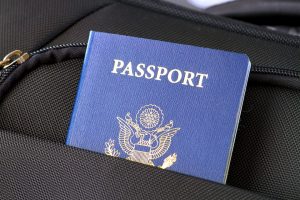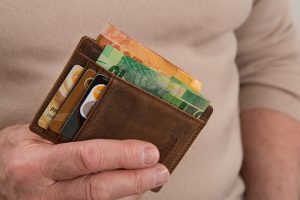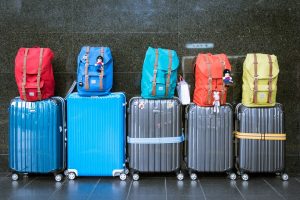
Holiday Travel Tips
Posted by on Nov 28, 2017 in
It’s nothing new that many people choose to travel during the holidays. Whether to see out-of-town family or to forego the traditional snowy Christmas and escape the cold for sunnier destinations, there’s a lot of people with the same ideas in mind which can lead to a higher risk for travel headaches and hiccups. The unpredictable weather and large number of fellow travellers can make for some frustrating times so we’re sharing some travel tips that will hopefully help your travel this holiday season go just as smooth as Santa’s milk with his cookies!
- Leave a copy of your travel itinerary with family, friends, or trusted neighbours and let them know if plans change for any reason. This not only allows for another person to know your whereabouts should an emergency happen while you are away and they need to contact you, but also ensures care can be established for any pets or home items needing to be checked on should your return home be delayed.
- Check that all travel documents such as passports, visas, and vaccinations are all up-to-date. It’s also a good idea to leave copies of your important documents, such as your passport, driver’s license, credit cards and any others, with a family member, or trusted friend in case of theft while you are away.

- Make your home look alive. A dark home with no signs of people around for some time is a prime target for break-ins. Arrange for family, friends or trusted neighbours to come by, pick up your mail and/or newspaper so they don’t pile up in your mailbox or on your doormat, clear any snow on the driveway and walkway and leave a few car tire marks in the snow. You can also set up a timer to turn on a few lights in the home during the morning and evening to make it look more convincing that someone is home.
- Going somewhere with a different currency? Do your research ahead of time on the currency exchange so you can set your budget accordingly and look after exchanging some money prior to your departure to have on hand should you have any issues with your cards once you’ve landed, and for tipping.

- Know of all entry requirements for your chosen destination. Not all countries are the same with entry requirements, so be sure to do your research well enough ahead of your travels so you can ensure you have all items needed. If you have any questions about what might be required for your destination, speak with a travel agent or the embassy of the country you plan on visiting.
- Pack enough medication. If you take medications on a regular basis, or if a delayed trip home may interfere with you taking a dose of medication, pack sufficient medication to cover you in case of an unforeseen circumstance. If this applies to you, it is also a good idea to contact the nearest consulate to find out the country’s health laws and whether a doctor’s note or written prescription is required to bring your medication into the country.

- Get the proper travel insurance for your trip. Do some research about what coverage is included in your plan so you can make sure you are covered if your trip is interrupted or if there is a medical emergency while away. If you have any questions about travel insurance or are looking to purchase travel insurance, call us at 613-224-1455. We offer affordable yet comprehensive travel policies tailored for you to help eliminate any concerns or worries and give you the opportunity to enjoy your trip to the fullest.
- Clearly identify all luggage with your name, current address and phone number. It’s also helpful to include the information on the outside and inside of your luggage should an outer luggage tag fall off. Also, if you have common coloured luggage, such as a black or navy blue bag, consider putting a colourful luggage strap or ribbon on your bag to help identify it at the luggage carousel.

- Bring a basic first-aid kit with you. Pack a few essential items to help with any minor medical issues which might occur during your trip so you don’t require going to a pharmacy, or worse a hospital, for something as simple as a cream or ointment for an insect bite or small scrape. Other items which are useful to include in your first-aid kit are bandages, aspirin, sunscreen, soap, a thermometer and tweezers. Your first-aid kit can be modified depending on your travel destination. Check with your airline about items allowed in carry-on baggage before packing your first-aid kit.
- Have a note added to your file with your bank saying that you are travelling, where to, and for how long, so your account isn’t flagged and suspended for suspicious activity if purchases are made in a strange location outside your usual spending area.
- Visit the Canadian Air Transport Security Authority website for the latest information for air travellers, including safety measures you should take.
- No matter where your holiday travels take you, or whatever is thrown your way during your trip, remember to stay safe and enjoy your holidays!


